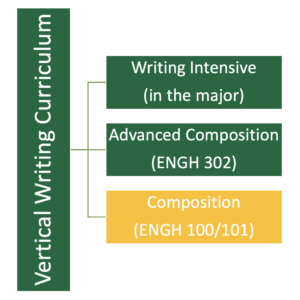The Mason Core curriculum offers students a signature opportunity to develop writing competencies across their educational experiences that prepares them to participate in a variety of academic, professional, and civic communities. It does so in part by providing students with a “vertical” writing curriculum: a carefully sequenced series of Composition and Writing Intensive courses designed to facilitate the long-term growth of writers as they develop expertise in communicating knowledge, particularly disciplinary knowledge, across a range of contexts and audiences.
Written Communication lower-level (English 100/101) as the first course in Mason’s vertical writing curriculum provides student writers with the skills and mindsets needed to effectively respond to a range of academic and public writing situations through particular attention to rhetorical flexibility and inquiry-based research. Students learn to engage in a process of discovery and consider diverse perspectives before making a judgment, taking a stance, or proposing a solution.
Learning Outcomes:
Upon completing the Written Communications lower-level course, students will be able to:
- Analyze and respond to a range of rhetorical situations with increased awareness of the purposes, audiences, and contexts of writing.
- Develop strategies for anticipating and using audience response as they engage in and reflect upon a recursive writing process that includes exploration, inquiry, and invention, as well as drafting, organizing, revising, peer-reviewing, and editing.
- Gain emerging college-level proficiency in critically reading and writing nonfiction genres to develop analysis, reflection, exposition, argumentation, and research skills.
- Use research strategies for topic exploration and refining research questions; locate, select, evaluate, synthesize, and document sources; and incorporate outside facts, perspectives, and ideas in their writing to complicate and extend their own ideas.
- Develop knowledge of linguistic structures and writing conventions through critical reading and practice (writing and revision) by composing different types of texts based on genre and audience.
Required: English 101 (or 100)
Approved Courses: For the current list of approved courses, please see the Catalog.

